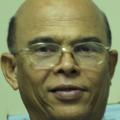The top representatives of 18 armed groups are gathering for a rare summit at Laiza, the Kachin rebels' headquarters, on the China-Myanmar border in northern Burma, according to media reports. At the meeting, 18 armed ethnic groups will talk about Naypyidaw's offer to assemble a nationwide ceasefire conference in November 2013.
The Karen National Union's outspoken General Baw Kyaw Heh said that he wants ethnic people to work together for the equality of all the people of Burma, according to the Karen News. General Baw Kyaw Heh, the Karen National Liberation Army's vice-chief-of-staff said he really supported the Ethnic Nationalities Summit to be held in Laiza, the headquarters of the Kachin Independence Organization.
The Karen National Union will send a three-member delegation, including its General-Secretary Kweh Htoo Win to the historic summit, but the general said he has no plans at this phase to attend. The Karen National Union (KNU) representatives - Mutu Sayphoe (President), Kwe Htoo Win (General-Secretary) and Htoo Htoo Lay (Adviser) - will be leaving Rangoon on 27 October from where they will fly to Myitkyina, the Kachin State capital.
General Baw Kyaw expressed that he was optimistic about the upcoming gathering of ethnic leaders, but said he remains cautious about a nationwide ceasefire.
According to the Shan Herald Agency for News (S.H.A.N.), on 27 October, eleven delegates from the United Nationalities Federal Council (UNFC) including the host Kachin Independence Organization started journey to Laiza from Tachilek, the Thai-Burmese border. Among the UNFC delegates are Nai Hong Sa, General Secretary and Abel Tweed, Vice Chairman, said the source.
The representative for the Restoration Council of Shan State/Shan State Army (RCSS/SSA) is Col Sai La, Secretary-2, who will be accompanied by Harn Yawnghwe (Adviser) and Khuensai Jaiyen (Adviser). Its sister organization Shan State Progress Party/Shan State Army (SSPP/SSA) will be represented by Col Khun Hseng, General Secretary, Lt-Col Kyaw La and Maj Ba Tun, as said by Shan News.
An interesting response from Mongla, the National Democratic Alliance Army (NDAA), is they would not appear at the rare ethnic summit. According to Shan Herald Agency for News, NDAA said "Because Panghsang ( Wa HQ) is not going, of course," said the source, refusing to elaborate.
When Shan News asked Panghsang of their reason to stay away from the summit, the source replied, "We don't want to bother either the East (meaning China) or the West (meaning Naypyitaw)". It's clear that the NDAA and the United Wa State Army (UWSA) are longtime close allies.
The UWSA and the National Democratic Alliance Army (NDAA) said they will uphold the following four principles: (1) They will not surrender. (2) They will not transform into BGF unless their autonomy demands are met. (3) They will not shoot first. (4) But they are ready to protect themselves and they will not secede from the Union, according to the sources from the Sino-Burma border.
The UWSA is one of the 17 armed ethnic ceasefire groups that supported the previous military junta's 14-year long National Convention that finished in September 2007. The Wa army has about 30,000 soldiers, and some of their equipment is more advanced than that of the government military, observers said. The UWSA, formed by members of the Chinese-speaking Wa ethnic group, were one of several ethnic militias founded after the 1989 breakup of the Burmese Communist Party.
In March 2010, Chinese defense officials made an effort to repair the worsening relationship between the UWSA and the ruling military junta which demanded repeatedly the Wa accept its Border Guard Force plan. Chinese officials suggested that unless (UWSA) and (NDAA) get involved with the new ethnic alliance, the military junta will leave the two alone, a source said.
However, the UWSA has already said it would be present at the planned Nationwide Ceasefire Agreement signing ceremony if the government invited them.
In line with the various media reports, the Laiza summit is likely to debate on the Nationwide Ceasefire Agreement draft proposed by the President Thein Sein Government. Some observers are cautious of the government's nationwide ceasefire signing proposal and see it as a ceasefire without guarantee for political solution. It's merely another tactic of the government's time-buying strategies. Many observe the government's proposed agenda for signing a nationwide ceasefire accord as a political trap to make use of the context.
The leaders of the ethnic rebel-groups will talk about reaching a nationwide ceasefire treaty, which the President U Thein Sein's government seriously wants all groups to sign in approaching November. Most ethnic rebel leaders may consider the Laiza summit is important for the whole reconstruction of a federal union guaranteeing autonomy for respective ethnic groups.
Some observers said that if the principles of the summit portray self-determination for all, the "Laiza Agreement" will becomes a contemporary historic document of the country. Even though, no one can definitely say that the existing government together with its military leaders are ready to accept the outcome of the Laiza ethnic summit.





